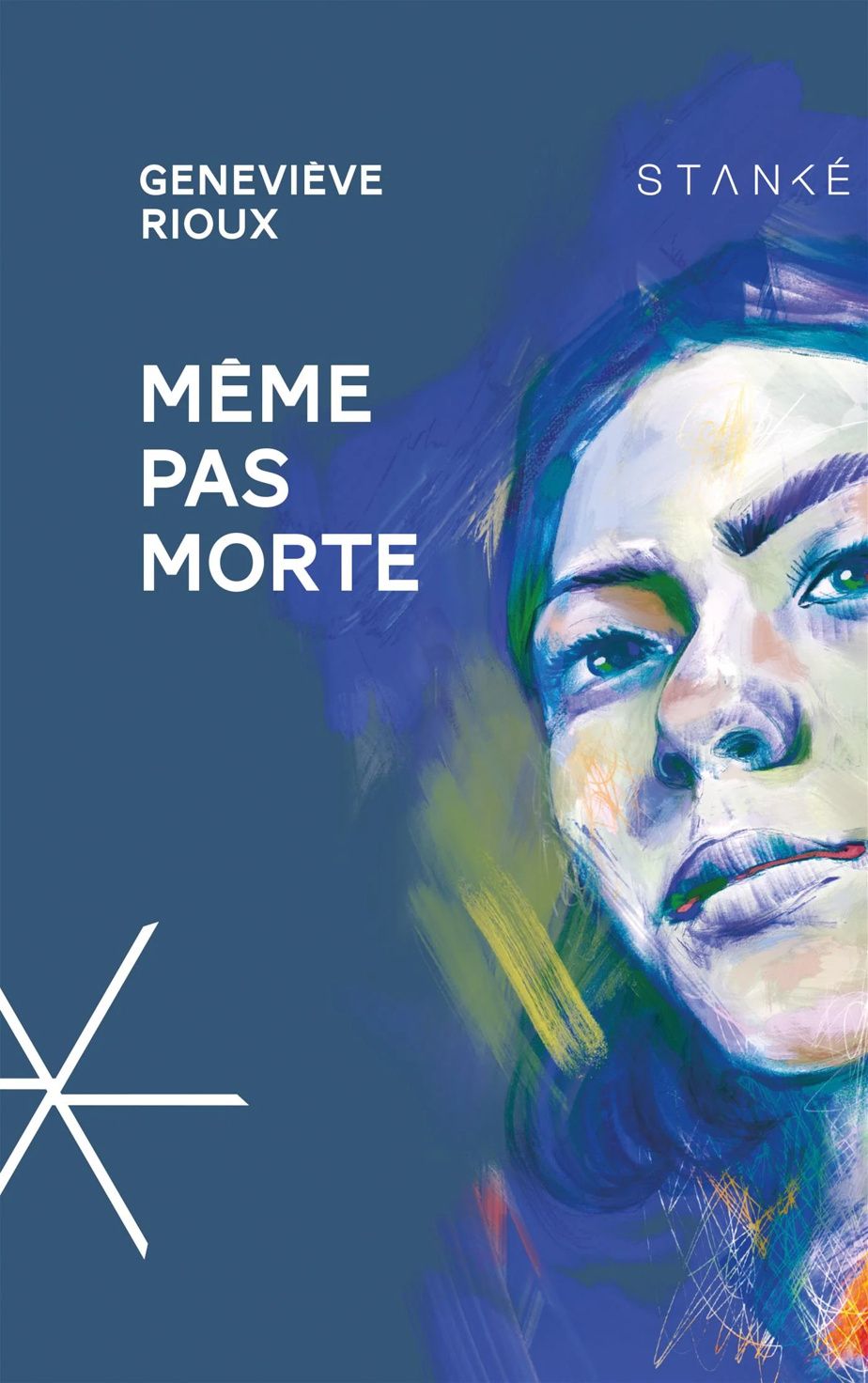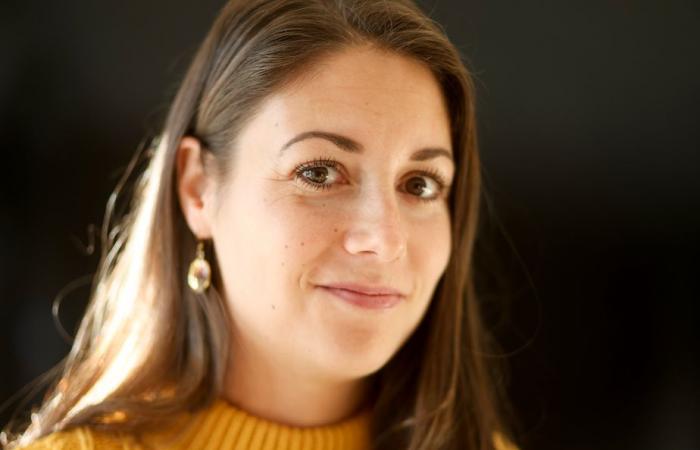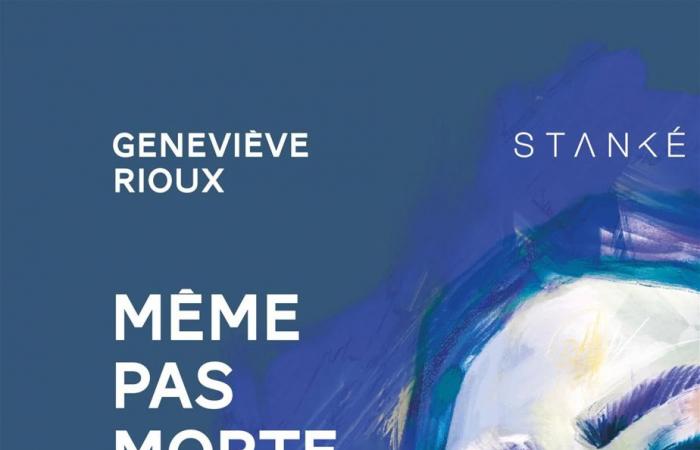Hold your breath, this story starts off stiff. not even dead is not a figure of speech, but rather a story of attempted murder, rape, with all the stabbing involved. The author Geneviève Rioux has created a novel that we will not soon forget, curiously full of great poetry and improbable humanity.
Published yesterday at 12:00 p.m.
If the expression were possible, we would say outright: superhuman humanity.
This is because the author, to whom we owe this text as violent as it is deeply moving, which still lives with us, days after having devoured it, was inspired here by a real-life event. Hold on tight: his.
Hard to summarize our meeting with this survivor. Because it is one. In journalistic memory, we do not remember being so moved. The author and doctoral student in psychology, who looks like a wise young girl with her large brown eyes, often wet during the interview, was also the victim, a few years ago, of an attempted murder and rape. . And she survived. Even drawing on his past to publish a collection of poetry, Survivaces (2022), which she currently presents on stage, opening for David Goudreault, her lover in life.
With not even deadin bookstores next week, this time she offers a work of fiction, halfway between the thriller and the psychological thriller, which we understand is more or less “inspired” by her experience, and by a family trauma (hang -you again: his mother was also the victim of a similar attempt) as a bonus, frankly well put together, with surprising luminosity. We will not be surprised to learn that several have already shown their interest in adapting the novel for television, we whisper.
It’s hard here not to be tempted to ask a thousand questions about the connections between his story and that of Steph, the main character of not even deadhis mother, not to mention the murderer. But for obvious reasons, the investigation being still ongoing to this day, we will abstain, and instead concentrate on the novel, therefore, very judiciously titled moreover, published by Stanké.
“It’s not my story,” the author clarifies straight away, in her soft, calm voice.
PHOTO FRANÇOIS ROY, THE PRESS
The author Geneviève Rioux
It is a story that is fictional. […] Even if obviously, having experienced such a serious crime, there is an inspiration…
Genevieve Rioux
If it is not “essential”, according to her, to decide here what is true and what is false, it is however fundamental to ask this question: “Who dies when killing? » This is the very first sentence of the book, and the question that underlies the entire novel. In other words: “What does the aggressor gain when the victim gets up and does something with this tragedy? This is the message I want us to hear. And I know that this affects many women, who may not have benefited from the justice system,” adds Geneviève Rioux, also spokesperson for the Restorative Justice Services Center.
Quest for freedom
Steph is left for dead (we’ll spare you in what state). The story then follows her as she rebuilds herself through the maze of administrative and medical procedures, from the hospital to appointments with her psychologist, including meetings with investigators. It must be said that his character shows a singular rage for life, but curiously, no rage at all. Forget the desire for revenge here. Rather: a great thirst for understanding, which will drive him throughout the novel, breathless, narrated with a certain poetry, with almost philosophical reflections. A telling example: “you lost in death, she gained in life,” she writes.
“As the subject is quite trashy,” continues the author, “it was important to have gentle writing. And despite the trashy theme, I have the impression that it’s rather bright. »
She is in a quest for justice and freedom. Above all, she wants to understand.
Geneviève Rioux, about Steph, in not even dead
If the novel begins stiffly, as we have said, in the middle of a murder attempt, Geneviève Rioux has chosen to tell Steph’s story in the third person (“her breath is short, jerky”). Conversely, when she refers to the murderer, she speaks to the “you”: “she saw you, toé, someone, anyone, hooded dressed in black […]. You have tilt… ».
This clever game of pronouns is not innocent. “Distance allows you to step outside of yourself to go further,” she explains. As for the “toé”, she sees it as a posture of defense, downright survival: “She never lowers her eyes, and that’s how she doesn’t collapse. This becomes his anchor. »
“The murderer botched his murder,” she repeats, “failed his rape, even failed to make Steph suspicious. She is able to see outstretched hands. » Those of a doctor, there of an investigator, further afield of a friend. That’s not innocent either. “And it’s another message: we need men, as much as we need women,” she wants to point out.
Yet another message: the murderer is not portrayed as a monster. “It is not a process of forgiveness, but of understanding,” explains Geneviève Rioux here. Literature raises a lot of awareness, I think, because through stories, we experience real emotions, which allows us to understand. That’s the ultimate goal of fiction, even. »
Speaking of literature, the author indicates here that she has always dreamed of writing. “As a child, I already wanted to become a writer,” she confides. It’s fascinating to have arrived at this dream through this forced passage. Maybe if I hadn’t had such a glaring message, I would never have had the audacity to write…”
It must be said that Geneviève Rioux carries this message of life within her. Literally: on her. “I see my scars every day. Every day, I have thoughts or behaviors of vigilance,” she says, still in her same soft voice. “If I write,” she concludes, “it’s because I don’t want it to be taboo. I want it to be liberated. »
In bookstores November 20

not even dead
Genevieve Rioux
Stanke
344 pages








